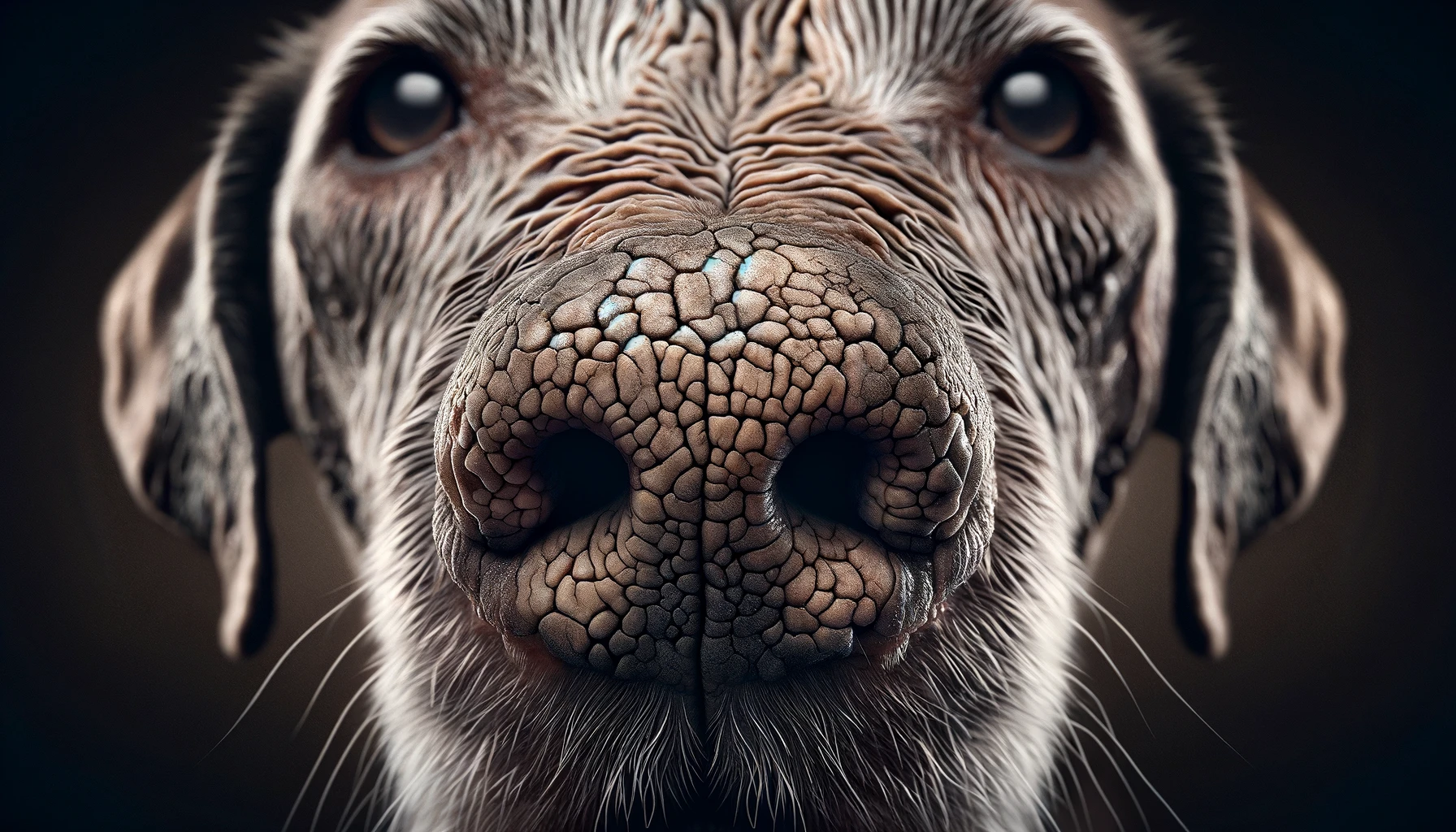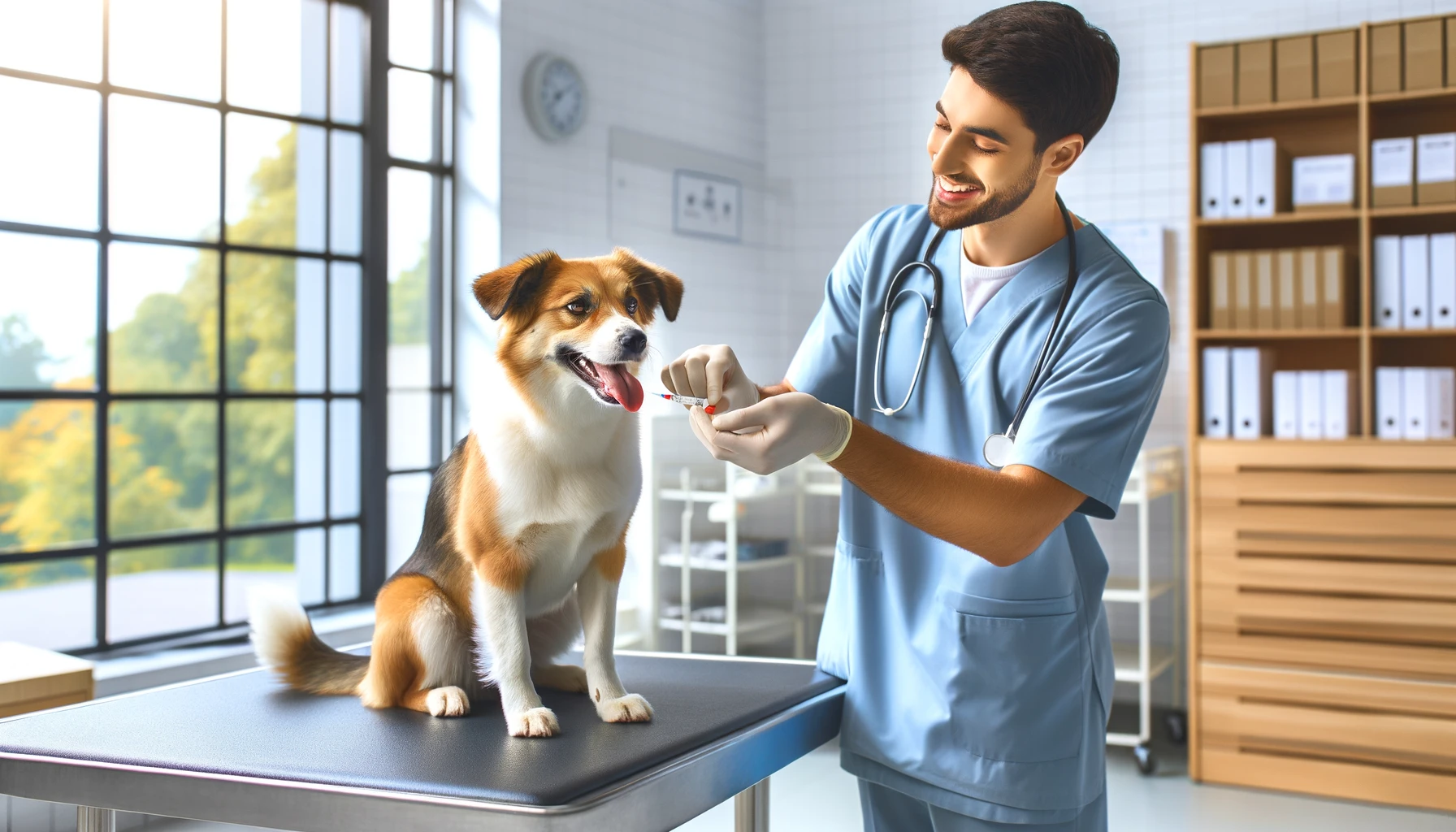Are you concerned about your dog's health? Discover the solutions to common dog health concerns in this informative article.
From preventing parasites to maintaining dental hygiene, we'll provide you with evidence-based advice.
Learn about the importance of nutrition and dietary needs, managing allergies and skin issues, ensuring proper exercise and weight management, and addressing mental health and behavioral problems in your furry friend.
Take proactive steps to keep your dog healthy and happy with these expert solutions.
Key Takeaways
- Regularly inspect your dog's fur and skin for signs of fleas and use a flea comb to remove them.
- Brush your dog's teeth regularly and use dental chews to promote dental health.
- Provide a balanced diet and consult with a veterinarian for appropriate portion sizes and types of food.
- Consider hypoallergenic diets, supplements, and regular grooming to manage allergies and skin issues.
Parasites and Prevention
Protect your dog from parasites through regular preventative measures. One of the most common concerns when it comes to dog health is parasite control, particularly flea prevention. Fleas are tiny insects that feed on the blood of animals, causing discomfort and itching. They can also transmit diseases to your furry friend. Thankfully, there are several effective methods to prevent fleas from infesting your dog.
The first step in flea prevention is to regularly inspect your dog's fur and skin. Look for any signs of fleas, such as tiny black specks or excessive scratching. If you notice any, take immediate action. Use a flea comb to remove adult fleas and their eggs from your dog's fur. This can help prevent the infestation from spreading further.
Another crucial preventative measure is to use flea control products. There are various options available, including topical treatments, oral medications, and flea collars. These products contain chemicals that kill fleas and prevent future infestations. It's essential to choose a product that's specifically designed for dogs and follow the instructions carefully.
In addition to these preventative measures, it's crucial to maintain a clean environment for your dog. Regularly vacuum your home, especially areas where your dog spends most of their time. Wash their bedding in hot water and dry it on high heat to kill any fleas or eggs that may be present.
Dental Care and Hygiene
To maintain your dog's oral health, it's important to prioritize dental care and hygiene. Just like humans, dogs can suffer from dental issues such as plaque buildup, gum disease, and tooth decay. Regular toothbrushing is one of the most effective ways to prevent these problems.
Use a soft-bristled toothbrush and dog-friendly toothpaste to brush your dog's teeth at least two to three times a week. Start by gently introducing the toothbrush to your dog's mouth and gradually increase the duration of each brushing session. Be sure to focus on the outer surfaces of the teeth, where most plaque accumulates.
Additionally, dental chews can be a great addition to your dog's oral care routine. These chews can help remove plaque and tartar buildup while also satisfying your dog's natural chewing instincts. Look for dental chews that are specifically designed to promote dental health and always choose the appropriate size for your dog.
Nutrition and Dietary Needs
To maintain your dog's overall health and well-being, it's important to prioritize their nutrition and dietary needs. Providing a balanced diet is essential for their growth, development, and overall vitality. Here are three key factors to consider when it comes to your dog's nutrition:
- Balanced Diets: Just like humans, dogs require a balanced diet to meet their nutritional needs. This means providing them with a combination of proteins, carbohydrates, fats, vitamins, and minerals. Consult with your veterinarian to determine the appropriate portion sizes and types of food for your dog's breed, age, and activity level.
- Food Allergies: Dogs, like humans, can develop food allergies. Common allergens include beef, chicken, dairy, wheat, soy, and corn. If you notice symptoms such as itching, digestive problems, or chronic ear infections, it may be due to a food allergy. Your veterinarian can help you identify the allergen and recommend an appropriate diet.
- Special Dietary Needs: Some dogs may have specific dietary requirements due to health conditions such as obesity, diabetes, or kidney disease. In such cases, your veterinarian may prescribe a special diet tailored to your dog's needs.
Allergies and Skin Issues
If your dog is experiencing allergies or skin issues, there are several solutions you can try to alleviate their discomfort.
Itching relief is a primary concern when it comes to allergies and skin problems in dogs. One effective solution is to provide your dog with a hypoallergenic diet. Food sensitivities can often trigger allergic reactions and skin issues in dogs, so switching to a diet that eliminates common allergenic ingredients such as beef, chicken, and grains can help alleviate their symptoms.
Additionally, you can try giving your dog supplements that promote healthy skin and coat, such as omega-3 fatty acids. These supplements can help reduce inflammation and improve the overall health of their skin.
Regular grooming, including bathing with gentle, hypoallergenic shampoos, can also provide relief by removing allergens and soothing irritated skin.
In more severe cases, your veterinarian may recommend medications or allergy shots to manage your dog's allergies and skin issues. Remember, it's important to consult with your veterinarian to determine the underlying cause of your dog's allergies and skin issues, as well as to ensure the most appropriate and effective treatment plan.
Exercise and Weight Management
If you want to keep your dog healthy and happy, it's important to prioritize exercise and weight management.
Obesity in dogs can lead to a range of health issues, including joint problems, diabetes, and heart disease.
Obesity Prevention Strategies
For effective obesity prevention in dogs, start with incorporating regular exercise and managing their weight through a balanced diet. Obesity in dogs can lead to various health issues such as diabetes, arthritis, and heart disease. Here are three strategies to help prevent obesity in your furry friend:
- Exercise: Regular physical activity is crucial for maintaining a healthy weight in dogs. Engage your pet in daily walks, play sessions, or other forms of exercise that they enjoy. Aim for at least 30 minutes of exercise per day to keep them active and burn calories.
- Portion control: Overfeeding is a common cause of weight gain in dogs. Follow the recommended portion sizes provided on the food packaging or consult your veterinarian for guidance. Avoid free-feeding and limit treats to prevent excessive calorie intake.
- Food quality: Ensure your dog's diet consists of high-quality, nutritionally balanced food. Avoid feeding them table scraps or foods that are high in fat and empty calories. Consult your veterinarian for guidance on selecting the right diet for your dog's specific needs.
Benefits of Regular Exercise
Regular exercise offers numerous benefits for managing your dog's weight and overall health.
Not only does it help with weight loss, but it also plays a crucial role in improving cardiovascular health. Just like humans, dogs can suffer from obesity, which can lead to various health problems such as joint issues, heart disease, and diabetes.
Engaging your dog in regular exercise can help them shed excess pounds and maintain a healthy weight. Exercise increases their metabolism, burns calories, and builds lean muscle mass. Additionally, physical activity stimulates blood circulation, strengthens the heart, and improves cardiovascular endurance.
Regular exercise also provides mental stimulation and helps prevent behavioral issues caused by pent-up energy. So, make sure to incorporate daily exercise into your dog's routine to promote weight management and overall health.
Mental Health and Behavioral Problems
To address common mental health and behavioral problems in dogs, start by understanding their unique needs and providing them with appropriate care and training. Dogs, like humans, can experience a range of mental health issues and behavioral problems that can affect their overall well-being.
Here are three important steps you can take to help your dog maintain good mental health:
- Behavioral training: Consistent and positive reinforcement training can help address behavioral issues such as aggression, excessive barking, and separation anxiety. Training your dog to respond to commands and teaching them appropriate behaviors can reduce stress and improve their overall mental state.
- Anxiety management: Dogs can experience anxiety due to various factors, including separation from their owners, loud noises, or unfamiliar environments. Creating a calm and secure environment for your dog, using techniques like desensitization and counterconditioning, can help alleviate anxiety symptoms. Additionally, providing mental stimulation through interactive toys and puzzles can keep their minds occupied and reduce anxiety.
- Socialization: Proper socialization is crucial for dogs to develop good behavior and positive interactions with other animals and people. Exposing your dog to different environments, people, and animals from an early age can help prevent fear and aggression issues later on.
Frequently Asked Questions
How Often Should I Groom My Dog's Fur to Prevent Parasites?
To prevent parasites, groom your dog's fur at least once a week. Regular grooming helps remove dirt, debris, and potential pests. It also gives you the opportunity to check for any skin issues or abnormalities.
Are There Any Specific Dental Care Products I Should Use for My Dog?
To maintain good dental health for your dog, it's important to use specific dental care products. Dog dental chews can help remove plaque, while a dog toothbrush and toothpaste can effectively clean their teeth and prevent dental issues.
What Are the Signs of a Food Allergy in Dogs?
If your dog is experiencing signs of food allergies, such as itching, digestive issues, or skin problems, it's important to address these common dog health concerns. Consult with a veterinarian for proper diagnosis and treatment options.
How Much Exercise Does My Dog Need to Maintain a Healthy Weight?
To maintain a healthy weight, your dog's exercise requirements depend on factors like breed, age, and overall health. Generally, aim for at least 30 minutes to 2 hours of daily exercise, including walks, playtime, and mental stimulation.
What Are Some Common Behavioral Problems in Dogs and How Can They Be Addressed?
To address common behavioral problems in dogs, it's important to use effective dog training techniques. For separation anxiety, gradual desensitization and counterconditioning can help your dog feel more comfortable being alone.
Conclusion
In conclusion, it's vital to address common dog health concerns through preventive measures and proper care.
Regular parasite prevention, dental hygiene, and a balanced diet are essential for their overall well-being.
Allergies and skin issues should be diagnosed and treated promptly, while exercise and weight management are crucial to prevent obesity and maintain a healthy weight.
Lastly, addressing mental health and behavioral problems through training and socialization can greatly improve a dog's quality of life.
By prioritizing these aspects, we can ensure our furry friends lead happy and healthy lives.






